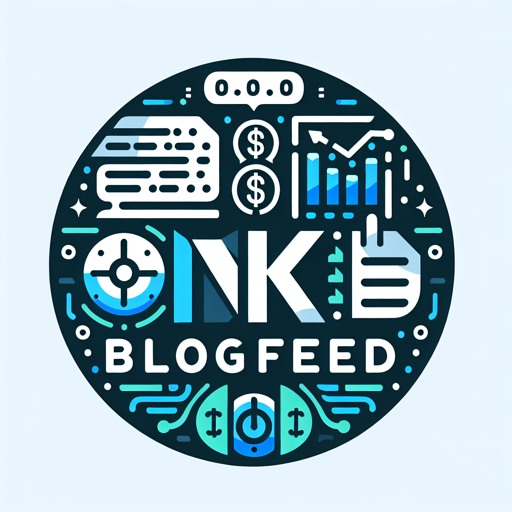Setting goals is an essential part of personal and professional growth. However, not all goals are created equal. To ensure that your aspirations are achievable and meaningful, you might want to consider the SMART criteria.
SMART stands for Specific, Measurable, Achievable, Relevant, and Time-bound. This framework provides a structured approach to goal-setting that can help you clarify your intentions and track your progress effectively. By adopting the SMART methodology, you can transform vague ambitions into concrete objectives that guide your actions and decisions.
When you set SMART goals, you create a roadmap for success. Instead of simply wishing for change or improvement, you define what success looks like and how you will measure it. This clarity not only motivates you but also helps you stay focused on your priorities.
Whether you’re looking to enhance your personal life, advance in your career, improve your health, or achieve financial stability, SMART goals can serve as a powerful tool to help you navigate the complexities of life. In the following sections, we will explore how to apply the SMART framework across various aspects of your life.
Key Takeaways
- SMART goals are Specific, Measurable, Achievable, Relevant, and Time-bound
- Personal development SMART goals can include learning a new skill or improving a specific aspect of your life
- Career advancement SMART goals may involve obtaining a certain certification or reaching a specific position within a company
- Health and wellness SMART goals can focus on exercise, nutrition, or mental well-being
- Financial success SMART goals might include saving a certain amount of money or increasing your income
- When setting SMART goals, be sure to write them down, track your progress, and adjust as needed to stay on track
SMART Goals for Personal Development
Setting SMART Goals for Personal Development
For instance, instead of saying, “I want to read more books,” you could set a specific goal like, “I will read one book per month for the next six months.” This goal is specific because it clearly defines what you want to achieve, measurable because you can track the number of books read, achievable given your schedule, relevant to your desire for self-improvement, and time-bound with a six-month deadline.
Learning a New Skill
Another example of a SMART goal in personal development could be related to learning a new skill. You might decide, “I will complete an online course in graphic design by the end of this year.” This goal is specific in its focus on graphic design, measurable through course completion, achievable if you allocate time each week for study, relevant to your interests or career aspirations, and time-bound with a clear deadline.
Building Confidence through SMART Goals
By setting such goals, you not only enhance your knowledge but also build confidence in your abilities.
SMART Goals for Career Advancement
In the competitive landscape of today’s job market, setting SMART goals for career advancement can significantly impact your professional trajectory. For example, instead of vaguely stating that you want to get promoted, you could articulate a goal like, “I will earn a promotion to Senior Project Manager within the next 18 months by completing two key projects successfully and obtaining my PMP certification.” This goal is specific about the position you aim for, measurable through project completion and certification acquisition, achievable with dedicated effort, relevant to your career path, and time-bound with an 18-month timeline. Additionally, networking can be a crucial aspect of career advancement.
You might set a goal such as, “I will attend at least three industry conferences this year and connect with five new professionals at each event.” This goal is specific in its focus on networking opportunities, measurable by the number of conferences attended and connections made, achievable if you plan ahead and allocate resources for attendance, relevant to expanding your professional network, and time-bound with a yearly framework. By establishing such SMART goals, you position yourself strategically for growth and new opportunities in your career.
SMART Goals for Health and Wellness
Your health and wellness are foundational to achieving success in all other areas of life. Setting SMART goals in this domain can lead to significant improvements in your physical and mental well-being. For instance, rather than simply aiming to “exercise more,” you could set a goal like, “I will work out for at least 30 minutes five times a week for the next three months.” This goal is specific about the frequency and duration of exercise, measurable through workout logs, achievable based on your current fitness level, relevant to your desire for better health, and time-bound with a three-month commitment.
Another area where SMART goals can be beneficial is in nutrition. You might decide to set a goal such as, “I will prepare at least three healthy home-cooked meals each week for the next two months.” This goal is specific in its focus on meal preparation, measurable by counting the number of meals cooked, achievable if you plan your grocery shopping accordingly, relevant to improving your diet, and time-bound with a two-month timeframe. By implementing these types of SMART goals into your health regimen, you create actionable steps that lead to lasting changes in your lifestyle.
SMART Goals for Financial Success
Achieving financial success often requires careful planning and disciplined execution. By setting SMART financial goals, you can take control of your financial future. For example, instead of saying you want to save money, you could establish a goal like, “I will save $5,000 for an emergency fund within the next year by setting aside $416 each month.” This goal is specific about the amount you wish to save, measurable through monthly contributions, achievable based on your income and expenses, relevant to building financial security, and time-bound with a one-year deadline.
You might also consider setting SMART goals related to debt reduction. A possible goal could be: “I will pay off my credit card debt of $3,000 within the next 12 months by making monthly payments of $250.” This goal is specific regarding the debt amount and payment plan, measurable through tracking payments made each month, achievable if you adjust your budget accordingly, relevant to improving your financial health, and time-bound with a clear one-year timeline. By focusing on these types of SMART financial goals, you empower yourself to make informed decisions that lead to greater financial stability.
Conclusion and Tips for Setting SMART Goals

Key Elements of SMART Goals
When setting goals, it’s essential to ensure they are specific, measurable, achievable, relevant, and time-bound. Vague goals often lead to vague results, so specificity is crucial. Measurability allows you to track your progress, while achievability prevents frustration and burnout. Relevance ensures that each goal aligns with your broader life aspirations.
Benefits of SMART Goals
By setting SMART goals, you can create a clear roadmap for success. Deadlines create urgency, helping you maintain focus and stay on track. By following the SMART criteria, you’ll be well on your way to turning your aspirations into reality.
Embracing the Power of SMART Goals
Remember, setting SMART goals is a powerful tool for transformation in your life. By applying the SMART criteria diligently, you’ll be able to achieve success in various aspects of your life. Embrace the process of setting SMART goals and start turning your aspirations into reality today!

